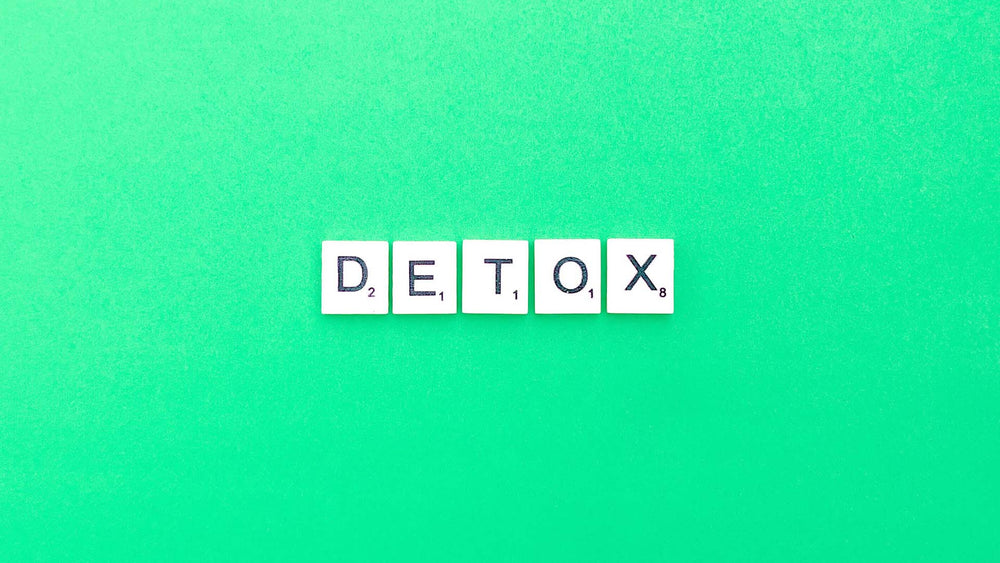Every decade or so, there’s a new breakthrough in the medical field that sheds light on the aging process. Recently, medical journals and mainstream media have focused on telomeres and their influence on aging.
Telomeres are caps at the end of your DNA strands. Research has shown that they shorten as most people age. Shorter telomeres translate into accelerated aging and may lead to cancer and other diseases.
Think of telomeres as the plastic end of your shoelaces. They keep your laces together, like telomeres keep DNA strands working properly.
When telomeres fray or get tangled, it interferes with genetic transmission. This faulty information may cause cell malfunction or disease. Damaged telomeres may contribute to diabetes, Alzheimer’s disease, certain types of cancer, and heart disease.
When a cell divides, telomeres shorten. As the years pass, telomeres are so short, they can’t be divided anymore. Cells either die or become inactive when telomeres are too short. The cells may also divide despite being too short, which is a harmful process.
As we age, telomeres stop working. Without new telomeres to take their place, body functions break down bit by bit. Getting older doesn’t necessarily mean you’ll suffer the results of aging the same way other people do. How you age and when you age may depend on the length of your telomeres.
The researchers looked at medical histories and saliva samples of over 100,000 people. The results showed that individuals with short telomeres had a greater likelihood of dying at a younger age.
Even if people with short telomeres didn’t smoke, drink and followed a healthy lifestyle, they still had a greater mortality risk than others in the study.
The study participants with the shortest telomeres had a greater chance of dying during the next three years than the other subjects. Researchers have yet to determine if telomere length can accurately predict disease, or if it merely indicates aging.

Chronic Stress Shortens Telomeres
Stress has constantly been proven as the enemy of healthy telomeres, according to studies conducted at Stanford and the University of California, San Francisco. Stress wears down telomeres much faster, and may result in premature aging or disease.
Another study, conducted in 2004 showed that Moms who took care of children with chronic illnesses had telomeres that were ten years shorter than those of Moms who cared for healthy kids.
Many studies on poverty and unstable childhoods (whether the family is rich or poor) indicate that a stressful childhood can shorten telomeres as people age. African-American boys from difficult backgrounds had telomeres that were 40 percent shorter than peers from calmer environments, according to one study.
The ill-effects of stress can even start before you’re born. If a mother experiences lots of prenatal anxiety, the baby may be born with shorter telomeres. This in- utereo stress may cause the child to age faster than his or her peers.
Genetics and growing older are the main factors affecting telomere length. Stress from childhood tends to cause shorter telomeres throughout life.
Our brains and bodies react negatively to years of chronic stress, and that causes telomeres to shorten. People with shortened telomeres due to chronic stress or depression look older than peers who don’t experience the same stress.
Chronic stress does more than aggravate you and make you angry. It can shorten your life.
You can reduce stress in your life, even if you can’t get rid of it completely. You’re powerless to stop a traffic jam or prevent a long line at the supermarket checkout, but you can control your reaction to them.
Exercise, restful sleep (including afternoon naps), a healthy diet, meditation and a strong social network are the best ways to lower stress.
The Enzyme Telomerase
The enzyme telomerase keep telomeres long and stops them from fraying. As cells divide, the amount of this enzyme dwindles, making telomeres shorter.
A study featured in the scientific journal Nature showed that mice without telomerase became frail and aged prematurely. When the same mice received telomerase, their health improved.
Scientists are now studying whether replacing telomerase in humans can slow the aging process.
Although telomerase lengthens telomeres, it makes cancerous tumors grow faster. More studies are needed to determine if increasing the amount of telomerase will do more harm than good.
All cells can produce telomerase, but sperm cells, white blood cells, stem cells and a few other cells need to produce it. These types of cells reproduce more than 50 times, so they won’t shorten telomeres.
More about Telomeres
There are about 20,000 articles about telomeres featured in scientific journals and papers. In 2009, the scientists who discovered telomeres won the Nobel Prize for Medicine or Physiology.
Cells replicate about 50 times before telomeres are too short to do their job. Cancer cells activate telomerase, which adds on to telomeres after cells divide. This explains why cancer cells keep growing and don’t die.
Swedish researchers found that some subjects had telomeres that didn’t get shorter over time, and some people’s telomeres got longer.
The researchers surveyed 959 people by drawing blood from them initially and then again nine to 11 years later. About a third of participants – 33 per cent – had a consistent or increased telomere length ten years later.
Abuse, isolation, neglect and a violent environment all contribute to short telomeres in children and teens. Nurturing from parents, grandparents or other relatives, mentoring from teachers, or strong friendships can help a child emotionally and lengthen telomeres.
Chronic stress affects eating patterns, and may cause you to eat more junk food or comfort food. It’s harder to resist impulses when you’re under stress, and this may cause you to overeat, drink more alcohol, smoke or take drugs. High stress leads to more abdominal fat, even when you don’t eat junk food.
Add more sugary food and junk food on top of the stress, and it will increase stress, shorten telomeres, and lead to weight gain and, if not dealt with, one or more medical conditions.

How to Lengthen Telomeres
Undo the damage done by stress, a poor lifestyle, or less than ideal upbringing with a shift to more positive habits. A new lifestyle will help you lose weight, get fit and feel happier – and may lead to longer telomeres.
Diet
There’s no substitute for eating fruits, vegetables and whole grains, but taking a multivitamin every day will help you get more of the nutrients your body needs. Research showed that women who took a multivitamin daily had slightly longer telomeres than women who didn’t.
Eliminate processed foods from your diet. Eat more home-cooked meals and avoid restaurants except for special occasions. (Even the classiest restaurants use too much salt in their recipes.)
Compile a master grocery list of healthy foods and choose from the list every time you go to the supermarket. Having a permanent list will prevent impulse buying at the store.
Buy as many fruits and vegetables as you can at farmer’s markets. Choose frozen fruits and veggies over canned, as they contain less sugar, salt and preservatives.
People who eat foods rich in Vitamin C and Vitamin E have longer telomeres than people who don’t. Oranges, broccoli, cauliflower, tomatoes, chili peppers, cherries, kiwi, lemon and kale are just a few of the foods high in Vitamin C.
Spinach, sweet potatoes, sunflower seeds, nuts, wheat germ, salmon, mangoes, cod and pumpkin seeds are just a few of the foods high in Vitamin E.
Stay away from sugary sodas (even diet soda is bad for you). People who drank lots of sugary soda have shorter telomeres, according to research by
Exercise
People who don’t exercise are three percent more likely to have short telomeres than individuals who do a moderate amount of exercise daily.
The more you exercise, the longer your telomeres will be, and research indicates that the advantages of exercising are most evident during middle age. Even if you’ve led a sedentary lifestyle for years, starting an exercise program will help you rejuvenate your telomeres.
Yoga is another excellent tool for relieving stress Aerobic exercise, yoga and vegan diet was shown to increase telomerase in men who suffered from stress. A follow-up study showed that these activities also lengthened telomeres.
Another study showed mindfulness meditation and yoga helped breast cancer survivors retain their telomere length. Patients who didn’t participate in these activities developed shorter telomeres.
Studies are currently being conducted on sedentary adults to determine the effect of exercise on stress and telomeres. Some experts believe that a healthy lifestyle and attitude can counteract the effects of stress. A good diet, exercise and getting enough sleep are important for everyone.
However, if you have unavoidable stress, a healthy lifestyle may be the difference between a long, disease-free life and development of a chronic condition.
Stress Management and Meditation
Meditation may make some people fall asleep. If you find that you get drowsy and fall asleep when attempting meditation, there are other stress-busting methods available. Prepare a cup of soothing chamomile tea and listen to quiet music, or avoid Smartphones and the internet for a few hours (or better yet, a whole day).
Becoming more mindful and living in the moment will reduce stress for most people. Constant worry about the past and the future takes the focus off today.
If you concentrate solely on what you need to do every day and every moment, you’ll build a stronger base for the future and reduce the ill effects of past mistakes. Mindfulness helps lessen the stress caused by wandering thoughts.
Social Environment
Experts agree that your social circle is important to your telomere length and overall health. Family and friends provide the best buffer against stress and depression. Long-term social connections, such as a friend or family member you can call or visit anytime, are vital to your health.
If used judiciously, social media can help you maintain relationships with friends and relatives who live across the country or overseas. Use Facebook and other online sites to build and bolster relationships, not to argue over politics or trivialities.
People who work long hours or lack money to attend social events like dinners or concerts with friends may find themselves becoming socially isolated. Find ways to socialize that require little time or money, like having coffee with a friend at home.
Even talking on the phone instead of texting can bring you closer to seldom-seen friends.

Self-Care
Many people spend most of their time working, running errands, and caring for others. Engaging in these activities non-stop, without taking time out for self-care, results in exhaustion, shorter telomeres and possible health problems.
If you care for a chronically ill family member, you may experience chronic stress and severe health problems. Studies have shown that the emotional and physical toll of long-term caregiving may include depression and cognitive impairment in the caregiver.
Arrange to have another trustworthy family member (or home health aide) take care of your loved one occasionally so you can see a movie, go out for dinner, or simply spend a few hours doing something you enjoy.
Wheatgrass as Part of a Stress-Reduction Plan
Wheatgrass has hundreds of nutrients your body needs, including potassium, magnesium, B-complex vitamins, Vitamins E, C and K and just about any other mineral or vitamin necessary for good health.
You can’t eat wheatgrass raw, but you can take it in supplement form. Supplements are safer than drinking wheatgrass shakes or juice, which may contain bacteria if not prepared properly. Happy Girl Natural Mood Enhancing
Supplement from Wheatgrass Love contains all the nutrients of wheatgrass and a special formula of herbal ingredients to balance your emotions and counteract the effects of stress.
Happy Girl’s herbal blend includes ginger, ginseng, white willow, cayenne pepper, green tea extract, gotu kola, and goldenseal. Goldenseal and white willow detoxify your body, while green tea extract and gotu kola boost your mood.
Learn more about Happy Girl and its ingredients at Wheatgrasslove.com. Wheatgrass Love also offers two other wheatgrass-based supplements.
REVV is a chocolate-mint wafer that gives you more energy safely and naturally, and Zeal O2 is a natural weight-loss supplement to help you curb your appetite without side effects.
















